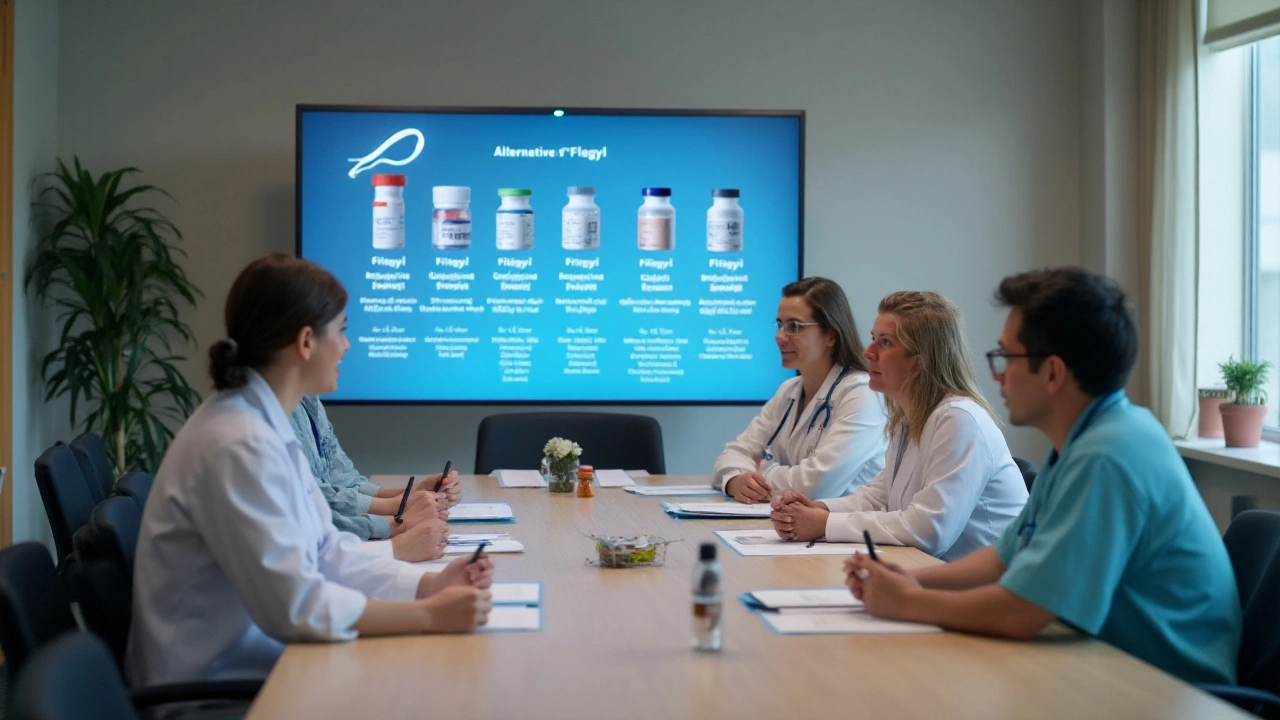Infection treatments: what works, what’s risky, and how to stay safe
If you suspect an infection, the first smart move is a clear diagnosis. Viruses, bacteria, and other bugs need different treatments. Give your symptoms and medical history to a clinician—self-medicating with the wrong drug can make things worse or breed resistance.
Antibiotics kill or stop bacteria, not viruses. That matters because taking antibiotics for a viral cold or most sore throats won’t help and can cause side effects. If your doctor prescribes an antibiotic, ask these quick questions: why this drug, how long to take it, what to watch for, and whether you have drug interactions or allergies. Finish the full course unless your clinician tells you otherwise—stopping early can leave some bacteria alive and lead to harder-to-treat infections.
Antibiotics: safety tips and common concerns
Different antibiotics have different risks. For example, ciprofloxacin can be useful for some cellulitis cases, but it also carries tendon and nerve risks and shouldn’t be used when safer options exist—check the article “Ciprofloxacin for Cellulitis: Ensuring Safety and Effectiveness” for details. Linezolid is powerful for resistant infections; it’s vital to follow dosing and be aware of food and drug interactions. Read the “Linezolid Pharmacokinetics and Pharmacodynamics” piece if you want the basics explained in plain language.
Always tell your clinician about other medicines, supplements, and foods you use. Some antibiotics interact with common drugs or require avoiding aged cheeses, cured meats, or alcohol. If you’re uncertain, ask a pharmacist or check a reliable guide before you mix treatments.
Antivirals, alternatives, and buying meds safely
For viral infections like shingles or cold sores, antivirals matter. If you’re looking at options other than Valtrex, our “2025 Alternatives to Valtrex” article compares topical and systemic choices and explains when each helps. Topical penciclovir creams can reduce symptoms for cold sores; systemic antivirals work best when started early.
Thinking of ordering meds online? Be careful. Our “eDrugstore.com Guide: Safe Online Pharmacy Shopping Tips” walks through how to spot legit pharmacies, what to avoid, and how to compare shipping and pricing safely. Never buy prescription antibiotics or antivirals without a valid prescription and a trustworthy pharmacy—fake meds or wrong dosages are more common than people think.
Practical rules that help now: get tested when needed, follow your prescription, watch for worsening signs (high fever, spreading redness, breathlessness), avoid sharing meds, and store drugs as labeled. If side effects appear—rashes, severe stomach issues, severe dizziness—stop the drug and contact your provider right away.
Want quick reading? Check our posts on ciprofloxacin for cellulitis, linezolid basics, Valtrex alternatives, and online pharmacy safety. They give clear, actionable advice so you can make safer choices when infections pop up.
Top 7 Alternatives to Flagyl You Should Know in 2024
Exploring alternative treatments to Flagyl has become increasingly important in 2024 due to varying patient needs and resistance issues. This article delves into seven viable substitutes, discussing their usage, benefits, and potential drawbacks. Each option offers unique features, allowing for flexibility in treatment approaches. From single-dose solutions to those suitable for metronidazole-resistant infections, these options provide valuable insights for healthcare providers and patients alike.

